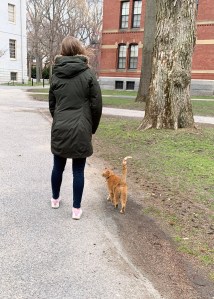Tag: Psychology
-
Health
A laugh a day keeps the doctor away?
No one knows why we do it, but it’s free, has no known side effects, and experts say it lifts spirits, lowers stress, makes us feel connected

-
Health
How America’s ageism hurts, shortens lives of elderly
Becca Levy ‘92, Ph.D. ’95 examines hidden stereotypes of aging, their insidious effects in excerpt from her new book

-
Science & Tech
When you talk silly to baby, the world joins in
Study finds striking similarities in infant-directed speech and song in cultures spanning six continents.

-
Nation & World
We haven’t just suffered during COVID. We’ve learned.
Resilience of young people, new treatment tools give Matt Nock hope amid challenges posed by social media, school and campus disruptions.

-
Science & Tech
Reminders from Hollywood on memory, amnesia, personality
Psychology, philosophy scholars mine psycho-thriller “Memento” for its lessons on function of recall, how it shapes who we are.

-
Science & Tech
Logic or emotion: Which is more valuable?
Neither thinking nor feeling is superior, according to Leonard Mlodinow’s new book, which argues that the two are inextricably linked.
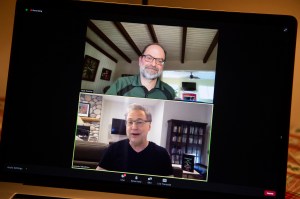
-
Science & Tech
Negotiating the irrational with Daniel Kahneman
Nobel-winning behavioral economist and author of “Thinking Fast and Slow” shares advice on negotiation at Harvard event.
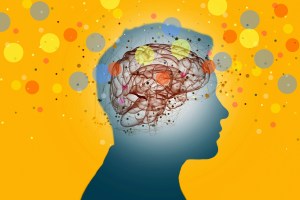
-
Nation & World
Why doesn’t rationality seem to matter anymore?
Rationality can be fixed, Steven Pinker argues, and if we don’t our democracy and environment may be at stake.
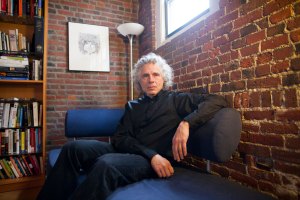
-

-
Health
3 ways to strengthen a child’s mental resilience
New study suggests practical strategies to help children through a pandemic.

-
Work & Economy
A key inflation index leaps. Getting worried?
Economist Kenneth Rogoff discusses how consumers’ perceptions about inflation are an important factor that influences inflationary cycles.

-
Campus & Community
The evolution of bigotry
James H. Sidanius devoted much of his career to social justice and racial equality.
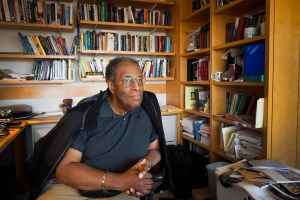
-
Campus & Community
An instrumental scientist
Jerome Kagan taught at Harvard for 36 years. He died May 10.
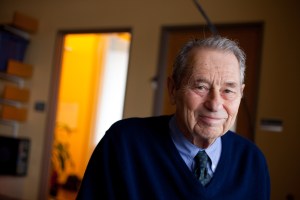
-
Campus & Community
5 faculty members named Harvard College Professors
Five faculty members join the ranks of Harvard College Professors.

-
Health
How spanking may affect brain development in children
Spanking may affect a child’s brain development in ways similar to more severe forms of violence, according to a new study led by Harvard researchers.
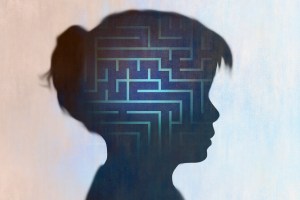
-
Science & Tech
What prompted Capitol rioters to violence?
The Jan. 6 attack on the U.S. Capitol over Donald Trump’s election loss stunned the country and forced many to ask what prompts people to political violence.

-
Nation & World
Lessons for the season of giving
Harvard psychologists who study charitable giving launched a new donation platform to examine what motivates people to give more effectively.

-
Science & Tech
Frère Jacques, are you sleeping?
Researchers at Harvard’s Music Lab have determined that American infants relaxed when played lullabies that were unfamiliar and in a foreign language.
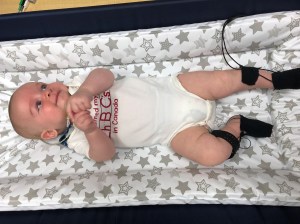
-
Health
Childhood trauma can speed biological aging
Childhood violence and trauma has a direct effect on a person’s mental and physical health as they grow, with certain kinds of trauma also affecting the pace of aging.
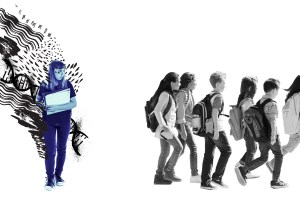
-
Health
3 takes on dealing with uncertainty
In these volatile times, three Harvard professors share insights from their fields on how to handle uncertainty.

-
Campus & Community
African and African American Studies at 50
Influential, groundbreaking African and African American Studies Department at Harvard turns 50.
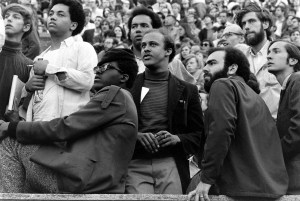
-
Nation & World
Unlearning racial bias
Miao Qian, a postdoctoral research fellow with the Inequality in America Initiative, studies the development of implicit racial biases in children to understand better how and when unconscious prejudices and stereotypes form in the brain.

-
Arts & Culture
Music everywhere
Scientists at Harvard published a study on music as a cultural product, which examines what features of song tend to be shared across societies.

-
Nation & World
Targeting incest and promoting individualism
Harvard Professor Joseph Henrich and a team of collaborators researched how a Roman Catholic Church ban in the Middle Ages loosened extended family ties and changed values and psychology of individuals in the West.
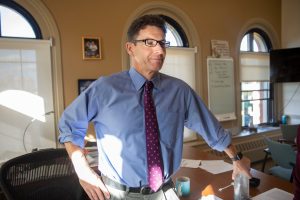
-
Science & Tech
Playing our song
Samuel Mehr has long been interested in questions of what music is, how music works, and why music exists. To help find the answers, he’s created the Music Lab, an online, citizen-science project aimed at understanding not just how the human mind interprets music, but why music is a virtually ubiquitous feature of human societies.

-
Campus & Community
One thing to change: Anecdotes aren’t data
Steven Pinker, the Johnstone Family Professor of Psychology, points to a number of instances where the use of anecdotes over data creates a false narrative.
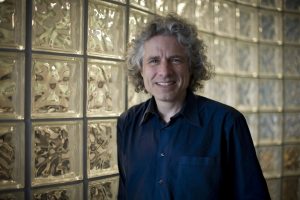
-
Nation & World
Pros at the con
Psychologist Maria Konnikova ’05, who studies the workings of con artists, talks about what underlies some recent pop culture scams and why we’re so fascinated by stories about them.

-
Science & Tech
Radcliffe scholar tracks squirrels in search of memory gains
Radcliffe Fellow Lucia Jacobs hopes to gain insights on human memory from her work with squirrels.





